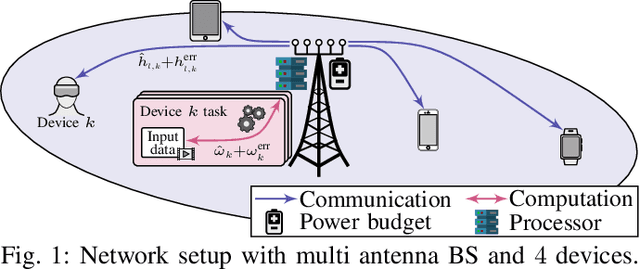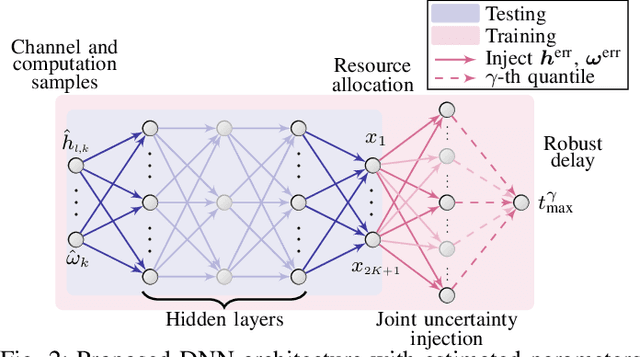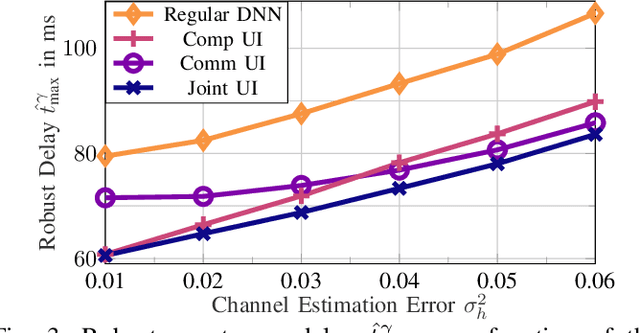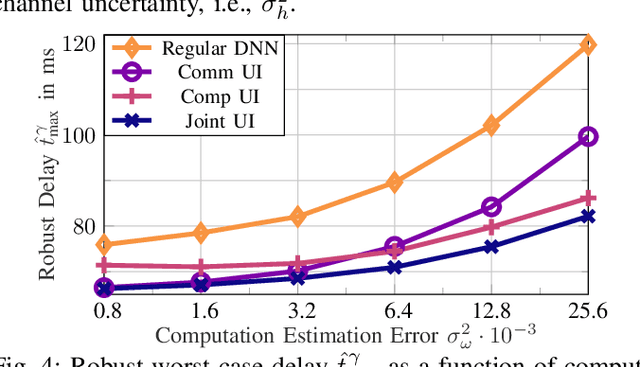Robust Communication and Computation using Deep Learning via Joint Uncertainty Injection
Paper and Code
Jun 05, 2024



The convergence of communication and computation, along with the integration of machine learning and artificial intelligence, stand as key empowering pillars for the sixth-generation of communication systems (6G). This paper considers a network of one base station serving a number of devices simultaneously using spatial multiplexing. The paper then presents an innovative deep learning-based approach to simultaneously manage the transmit and computing powers, alongside computation allocation, amidst uncertainties in both channel and computing states information. More specifically, the paper aims at proposing a robust solution that minimizes the worst-case delay across the served devices subject to computation and power constraints. The paper uses a deep neural network (DNN)-based solution that maps estimated channels and computation requirements to optimized resource allocations. During training, uncertainty samples are injected after the DNN output to jointly account for both communication and computation estimation errors. The DNN is then trained via backpropagation using the robust utility, thus implicitly learning the uncertainty distributions. Our results validate the enhanced robust delay performance of the joint uncertainty injection versus the classical DNN approach, especially in high channel and computational uncertainty regimes.
 Add to Chrome
Add to Chrome Add to Firefox
Add to Firefox Add to Edge
Add to Edge